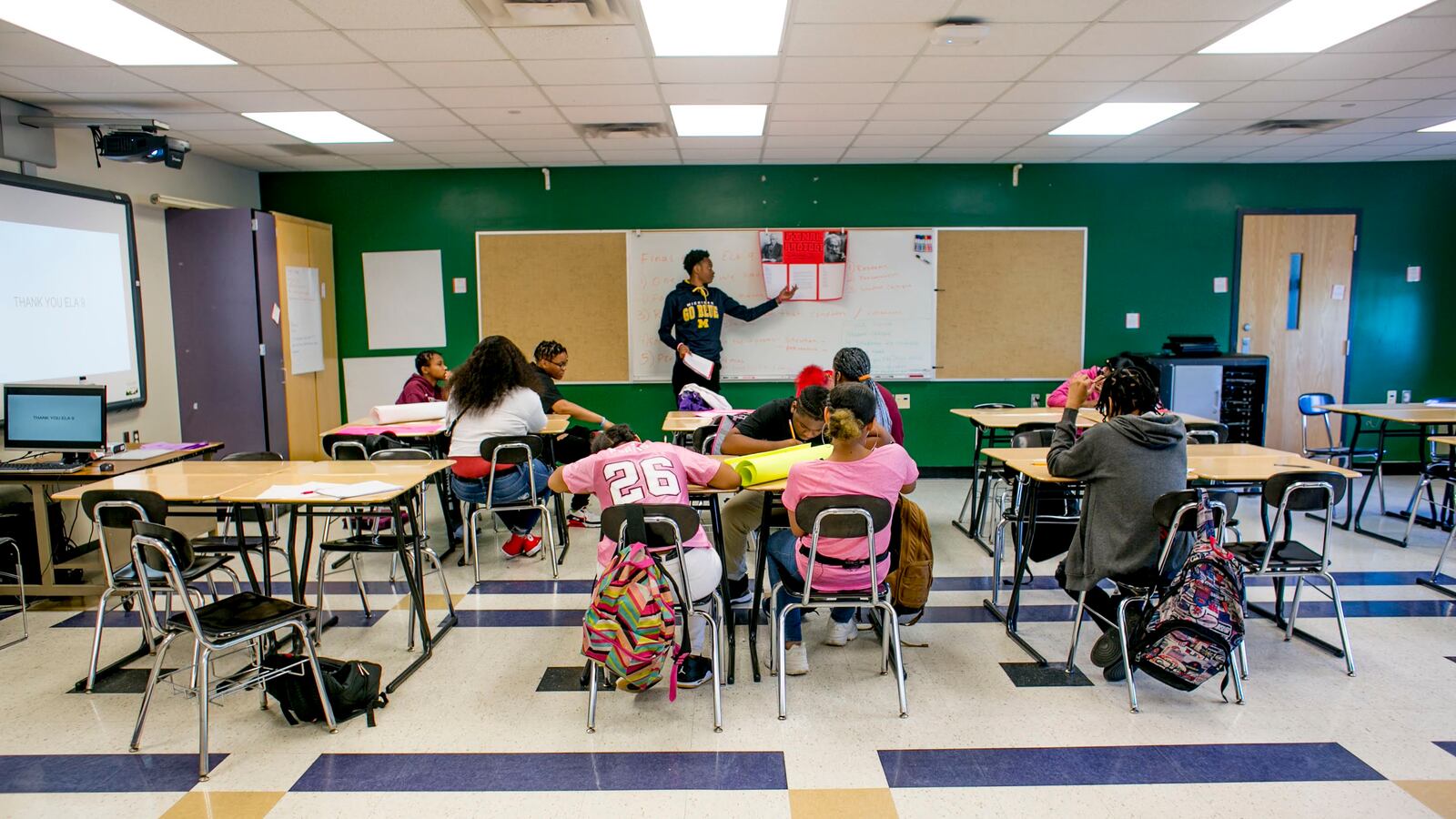As many districts across the state continue to struggle to recruit and retain teachers, a new report provides insight from a group whose voices aren’t always part of policy discussions: Working teachers.
Here are a few things they say can make a difference: Recruiting bonuses or other incentives for new teachers, equity in school funding, reducing barriers to earning certification, improving mentoring for less-experienced teachers, and paid internships for aspiring educators.
But one solution that seemed to permeate the discussion was this: Teachers said they want lawmakers to hear their voices during discussions about education.
“Take the time to listen to front line educators like myself before making policy decisions that impact … the classroom,” said Heather Gauck, a teacher in Grand Rapids.
Gauck was among several teachers who took part in a press conference to promote the report, “Examining Michigan’s Education Workforce: How to Address the Talent Shortage Facing Michigan’s Schools.”
The report comes at a critical time, as many Michigan school districts struggle to hire teachers, particularly for high-demand subjects like special education, math and science, and career and technical education. A report last year noted that Michigan’s supply of teachers is dwindling, and worse, that the state isn’t doing anything about it.
The report released this week was commissioned by the two statewide teachers unions, the Michigan Education Association and the American Federation of Teachers-Michigan, as well as by Middle Cities Education Association, a group that represents the interests of many of the state’s small urban school districts.
The report was completed by Public Policy Associates, a Lansing-based policy and research organization that held focus groups with teachers in five locations across the state, including Detroit, as well as via an online session. All total, 120 teachers participated. Michigan has about 105,000 teachers.
The author of the report, Dan Quinn, said the goal wasn’t to focus on the problems, but instead to offer solutions from teachers.
Quinn also noted that local leaders have been attempting to deal with the teacher recruitment issue on their own, some by creating teacher cadet programs that train current high school students who show interest in teaching. Statewide, though, he said there hasn’t been as much movement.
“There really hasn’t been a statewide, concerted effort to move these types of processes forward,” Quinn said.
For more of the teacher recommendations, read the report below.

